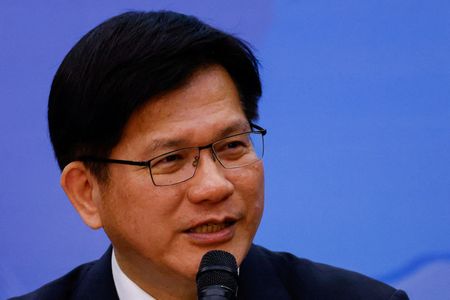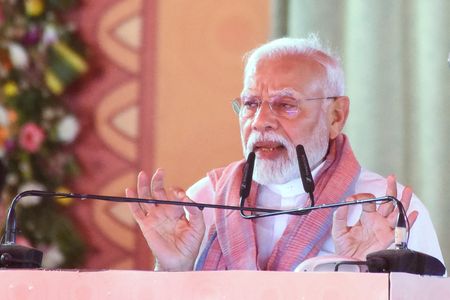By Karen Lema
MANILA (Reuters) -Philippine President Ferdinand Marcos Jr sought the resignation of all his cabinet secretaries on Thursday, in a move seen as an attempt to reset the political agenda and assert his authority over the second half of his single six-year term.
The order came after the president’s allies failed to win a majority of Senate seats contested in the May 12 polls, leaving Marcos facing a divided political and legislative landscape that could thwart his attempts to have an ally succeed him in 2028.
“He’s talking to the people, trying to salvage whatever political capital he has left. I think it’s the best he can do at this time,” said Ederson Tapia, public administration professor at the University of Makati.
Candidates aligned with Marcos’ estranged vice president, Sara Duterte, outperformed expectations in the midterms, which many saw as a proxy battle between Marcos and the Duterte camps.
“This is not business as usual,” Marcos said in a statement.
“The people have spoken, and they expect results – not politics, not excuses. We hear them, and we will act,” he said.
With less than three years in office left, Marcos is under pressure to deliver results and groom a successor capable of fending off any potential run by the popular Duterte in the 2028 presidential election.
“He should project strength lest he becomes a non-factor toward 2028 and even now,” Tapia said.
While the cabinet secretaries have been asked to resign, Marcos’ office clarified they will hold office until replacements are named so that government operations are not interrupted.
“Those who have delivered and continue to deliver will be recognised. But we cannot afford to be complacent. The time for comfort zones is over,” the president said.
Marcos has faced a steep decline in public support this year, with surveys by Pulse Asia showing his approval rating with voters dropping to 25% in March from 42% in February.
In stark contrast, Duterte enjoyed a significantly higher approval rating of 59% in March, the last poll Pulse Asia published before the midterms.
Sentiment towards the government has soured due in part to a perceived failure to control inflation, a top concern of Filipino households, even though it has been back within the central bank’s 2% to 4% target range since August.
(Reporting by Karen Lema; Additional reporting by Mikhail Flores; Editing by John Mair)







